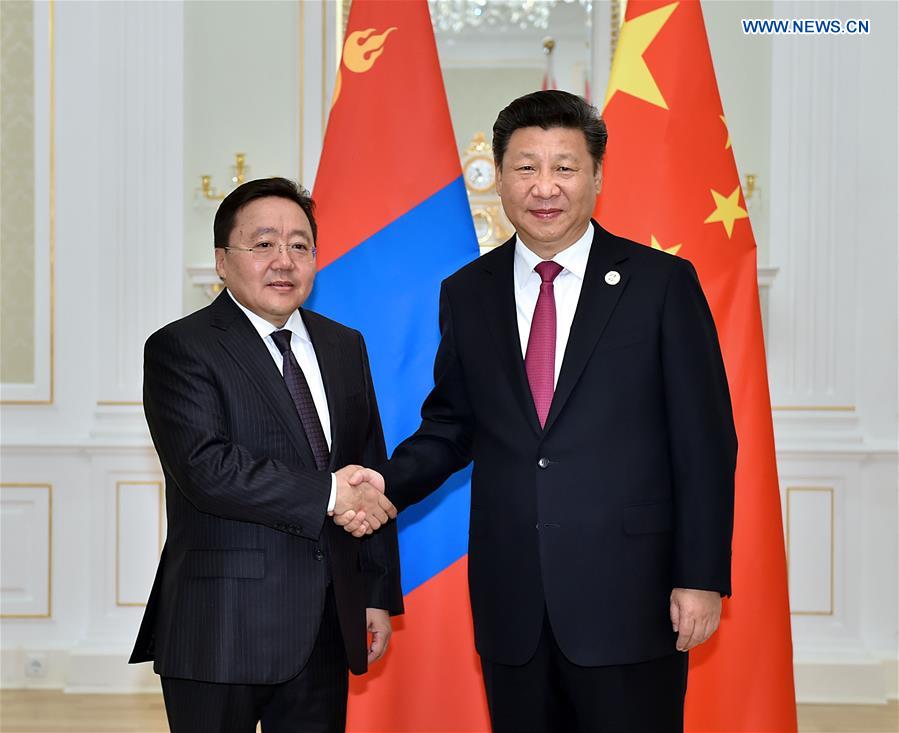Full coverage: President Xi Visits 3 Nations, Attends SCO Summit
Full coverage: China’s Leaders
TASHKENT, June 23 (Xinhua) -- Chinese President Xi Jinping and his Mongolian counterpart, Tsakhiagiin Elbegdorj, met here Thursday to discuss how to enrich their comprehensive strategic partnership.

Chinese President Xi Jinping (R) meets with Mongolian President Tsakhiagiin Elbegdorj in Tashkent, Uzbekistan, June 23, 2016. (Xinhua/Li Tao)
China-Mongolia ties are developing smoothly as the two sides maintain frequent contacts and their pragmatic cooperation continues to deepen, Xi said.
The two sides should work harder to implement all their consensuses so as to enrich their all-around strategic partnership and lift bilateral ties, Xi said.
The two countries should strengthen contacts at all levels, enhance mutual trust and offer each other understanding and support on issues related to their core interests and of major concerns, Xi added.
The two countries should also combine their development strategies and make joint efforts to raise bilateral trade volume to 10 billion U.S. dollars in 2020, Xi said.
He called on both sides to actively push ahead large-scale joint projects and strengthen cooperation on cross-border transportation and other projects.
China stands ready to enhance cooperation with Mongolia within regional multilateral frameworks such as the Shanghai Cooperation Organization (SCO) and jointly promote trilateral cooperation among China, Mongolia and Russia, said the Chinese president.
China backs Mongolia to host the 11th Asia-Europe Meeting next month, he said.
Elbegdorj thanked China for its long-term assistance to Mongolia's social and economic development, saying Mongolia is willing to enhance exchanges and cooperation with China in various fields.
The 16th meeting of the SCO Council of Heads of State is to be held in Tashkent on Thursday and Friday.
Founded in 2001, the SCO now has China, Kazakhstan, Kyrgyzstan, Russia, Tajikistan and Uzbekistan as its full members, with Afghanistan, Belarus, India, Iran, Mongolia and Pakistan as observers, and Armenia, Azerbaijan, Cambodia, Nepal, Sri Lanka and Turkey as dialogue partners.















